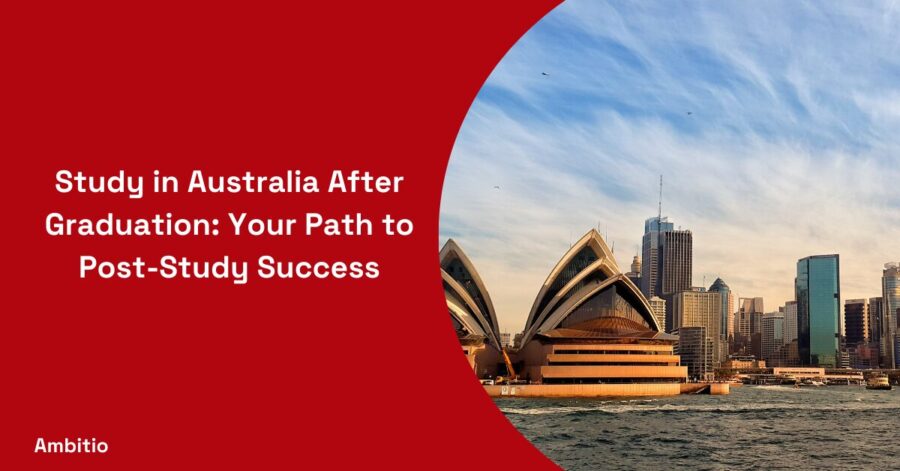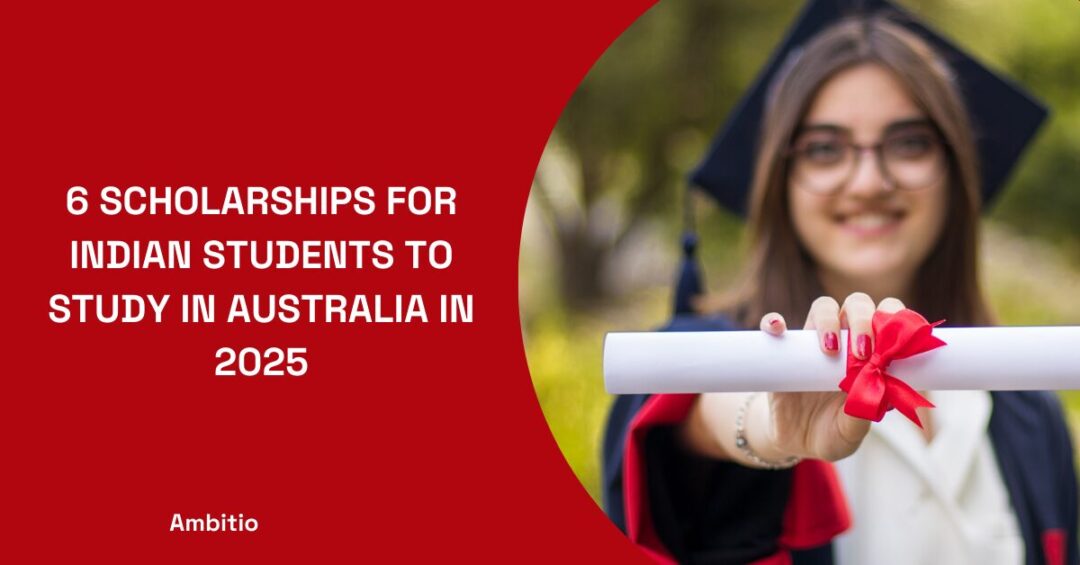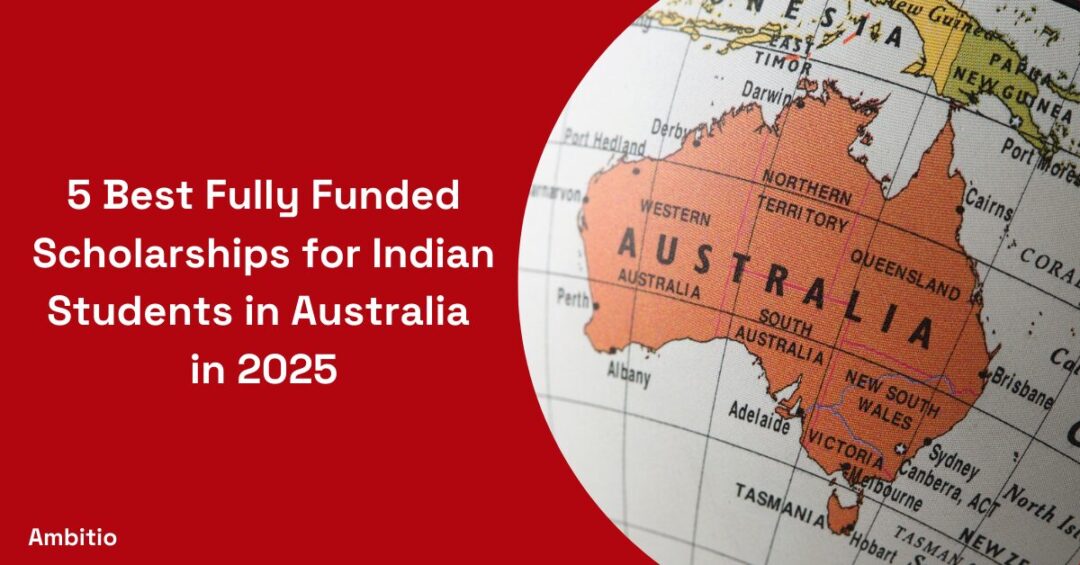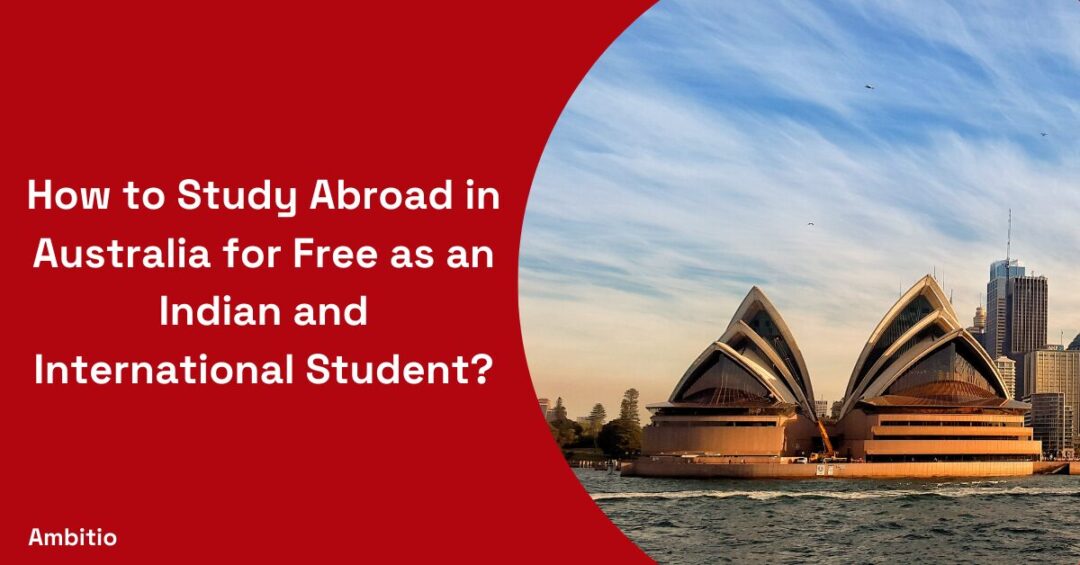14 June 2025
7 minutes read
Study in Australia After Graduation: Your Path to Post-Study Success

Are you an international student dreaming of pursuing higher education in Australia after completing your graduation? Australia, with its world-class universities and post-study work opportunities, is an attractive destination for many.
In this comprehensive guide, we will delve into the details of how to study in Australia after graduation, covering everything from visa options to academic requirements and the best universities in 2023.
International Student Visa Options
Student Visa (Subclass 500)
The first step to studying in Australia as an international student is obtaining a valid student visa. The Student Visa (Subclass 500) is the most common visa for international students. Here are the key details:
- Eligibility: To be eligible for this visa, you must have an offer of enrollment in a bachelor’s, postgraduate, or diploma course in Australia. Additionally, you’ll need to meet English language proficiency requirements, typically demonstrated through the IELTS or equivalent test scores.
- Duration: The duration of your student visa will depend on the length of your course. Generally, it allows you to stay in Australia for the duration of your program, with an additional buffer period.
- Work Rights: With this visa, you can work up to 40 hours per fortnight during your study period and full-time during scheduled breaks. This provides an excellent opportunity to gain work experience while studying.
Post-Study Work Rights
One of the most significant advantages of studying in Australia is the opportunity to work after graduation. The Post-Study Work stream (Subclass 485) enables international graduates to gain valuable work experience in their field of study. The duration of the visa varies based on your qualifications.
Temporary Graduate Visa (Subclass 485)
- Duration: The Temporary Graduate Visa (Subclass 485) has two streams: the Graduate Work stream and the Post-Study Work stream. The Graduate Work stream allows graduates with specific qualifications to stay for up to 18 months. On the other hand, the Post-Study Work stream provides a longer stay, ranging from two to four years, depending on your level of qualification.
- Eligibility: To be eligible for this visa, you must have completed a bachelor’s, master’s, or doctoral degree from an Australian institution. The Post-Study Work stream is especially attractive to recent graduates as it offers extended stay and work opportunities in Australia.
Academic Requirements
To qualify for postgraduate or diploma courses in Australia, you need to meet the academic requirements set by Australian universities. Each institution may have different criteria, so research the specific prerequisites for your chosen program.
Meeting Academic Requirements
- Transcripts: You’ll need to provide transcripts of your previous qualifications, including your undergraduate degree. Make sure your transcripts are in English or translated by a certified translator.
- English Language Proficiency: Most universities require proof of English language proficiency, usually through standardized tests like IELTS, TOEFL, or PTE. Check the minimum score required by your chosen institution.
- Letters of Recommendation: Some universities may request letters of recommendation from professors or employers. Ensure you have strong references ready.
- Statement of Purpose: You’ll often need to submit a well-crafted statement of purpose (SOP) outlining your academic and career goals. Make sure your SOP aligns with your chosen program.
Top Universities in Australia for 2023
Australia boasts a wide range of prestigious universities offering diverse courses across various disciplines. Some of the top universities for international students in 2023 include the University of Melbourne, the Australian National University, and the University of Sydney. Research each university’s entry requirements and programs to find the best fit for your educational goals.
University of Melbourne
- Programs: The University of Melbourne offers a wide range of programs for international students, including arts, business, science, engineering, and health sciences.
- Entry Requirements: Entry requirements may vary by program, but generally, you’ll need to meet the English language proficiency requirements and provide academic transcripts.
- Scholarships: Explore scholarship opportunities offered by the university to support international students.
Australian National University (ANU)
- Programs: ANU is renowned for its research-intensive programs. It offers a variety of undergraduate and postgraduate courses across various fields.
- Entry Requirements: ANU has stringent academic requirements, so be prepared to meet high standards in terms of academic achievement and English language proficiency.
- Research Opportunities: If you’re interested in research, ANU provides numerous opportunities to engage in cutting-edge projects.
University of Sydney
- Programs: The University of Sydney is known for its vibrant campus and diverse programs. From business to medicine, there’s something for everyone.
- Entry Requirements: Entry requirements vary, so check the specific requirements for your chosen program. A strong academic background and English proficiency are usually required.
- Campus Life: The University of Sydney offers a rich campus life, including clubs, societies, and cultural activities to enhance your university experience.
Eligibility Requirements and Admission Procedures
Understanding the eligibility requirements and admission procedures is a crucial aspect of planning your study in Australia after graduation. Each university may have slightly different criteria and processes, so it’s essential to research and prepare accordingly.
Eligibility Requirements
- Academic Qualifications: Generally, to be eligible for postgraduate or diploma courses in Australia, you must hold a relevant undergraduate degree from a recognized institution. For specific programs, there may be additional prerequisites, such as prerequisite courses or prior work experience.
- English Language Proficiency: Most universities require proof of English language proficiency, typically demonstrated through standardized tests like the International English Language Testing System (IELTS), Test of English as a Foreign Language (TOEFL), or Pearson Test of English (PTE). Ensure you meet the minimum score requirements set by your chosen institution.
- Transcripts and Certificates: You’ll need to provide your academic transcripts and certificates as part of your application. If these documents are not in English, be prepared to provide certified translations. Ensure that your transcripts clearly show the courses you’ve completed and the grades obtained.
- Letters of Recommendation: Some universities may request letters of recommendation from professors or employers who can speak to your academic abilities and character. Choose individuals who know you well and can provide strong recommendations.
- Statement of Purpose (SOP): Your SOP is a critical part of your application. It should articulate your academic and career goals, explain why you’ve chosen the specific program and university, and highlight how your background and aspirations align with the program’s objectives.
Admission Procedures
- Research Universities and Programs: Start your journey by researching universities and programs that align with your academic and career goals. Explore their websites, program descriptions, and admission requirements.
- Online Application: Most universities offer online application portals where you can create an account and submit your application. Ensure you provide accurate information and complete all required sections.
- Test Scores Submission: As part of your application, you will need to submit your standardized test scores, such as IELTS, TOEFL, or PTE. Be prepared to input these scores into the application form and upload any required documents.
- Transcripts and Certificates: Prepare your academic transcripts and certificates and ensure they are readily accessible for submission. Universities may request scanned copies during the application process.
- Letters of Recommendation: If your chosen program requires letters of recommendation, contact your referees well in advance to request these documents. Provide them with guidance on what to emphasize in their letters.
- Statement of Purpose (SOP): Write a compelling SOP that showcases your motivation, goals, and suitability for the program. Tailor it to each university and program you apply to, highlighting why you believe it’s the right fit for your aspirations.
- Application Fees: Be aware that there may be application fees associated with each university’s application process. Ensure you pay these fees promptly to avoid delays in processing.
- Deadlines: Pay close attention to application deadlines. Universities may have multiple intake periods, and missing a deadline can result in your application not being considered for the desired intake.
- Interviews and Supplementary Materials: Some universities may require interviews or additional materials, such as a portfolio or a writing sample, as part of the admission process. Be prepared to fulfill these requirements if necessary.
- Visa Considerations: While not part of the university’s admission process, it’s essential to begin researching and preparing your student visa application well in advance. Ensure you have all the required documents, including the Confirmation of Enrollment (COE) from your university, to support your visa application.
- Follow Up: After submitting your applications, keep track of your application status through the university’s portal. You may be required to provide additional information or attend interviews during the evaluation process.
- Acceptance and Enrollment: Once you receive acceptance letters from universities, carefully review the terms and conditions of admission. After selecting the university of your choice, complete the enrollment process by paying any necessary fees and confirming your attendance.
Extension of Post-Study Work
If you wish to extend your post-study work rights for international graduates, explore the options available. The Australian government may provide opportunities for eligible international students to continue working in the country.
Permanent Residency Pathways
- Skilled Migration: Australia offers skilled migration pathways for international graduates who have gained relevant work experience and skills during their post-study work period.
- Professional Year Program: Completing a Professional Year Program in Australia can earn you additional points for permanent residency applications.
- Regional Visas: Consider working in regional areas, as they often have more accessible pathways to permanent residency.
Conclusion
Studying in Australia after graduation offers international students a chance to gain valuable work experience, access top-notch education, and potentially pursue permanent residency.
By understanding the visa options, academic requirements, and admission procedures, you can take the first steps toward fulfilling your educational and career aspirations in the land down under.
Australia continues to be an ideal destination for thousands of international students seeking a bright future in a welcoming and diverse environment.
FAQs
Q1: Can I work in reGenerally, correspondence or online courses may not be eligible for post-study work rights. Ensure your chosen course is on the list of eligible programs and meets the requirements for work rights.gional areas in Australia after graduation?
Yes, Australia encourages graduates to work in regional areas, and specific visa pathways are available to support this. Working in regional areas can also enhance your chances of obtaining permanent residency.
Q2: Are correspondence courses accepted for post-study work rights?
Generally, correspondence or online courses may not be eligible for post-study work rights. Ensure your chosen course is on the list of eligible programs and meets the requirements for work rights.
Q3: How can I apply for permanent residency in Australia after studying?
Graduates who meet specific criteria may apply for permanent residency through various visa pathways. Skilled migration, the Professional Year Program, and regional visas are common options. Consult with immigration experts for guidance on the best path for your situation.
Q4: What are the benefits of studying in Australia as an international student?
Studying in Australia offers numerous benefits, including access to high-quality education, diverse cultural experiences, post-study work opportunities, and the potential for permanent residency.
Q5: How do I choose the right university and program in Australia?
Consider factors such as the university’s reputation, program offerings, location, cost of living, and scholarship opportunities when choosing the right university and program for your studies in Australia.

You can study at top universities worldwide!
Get expert tips and tricks to get into top universities with a free expert session.
Book Your Free 30-Minute Session Now! Book a call now




























